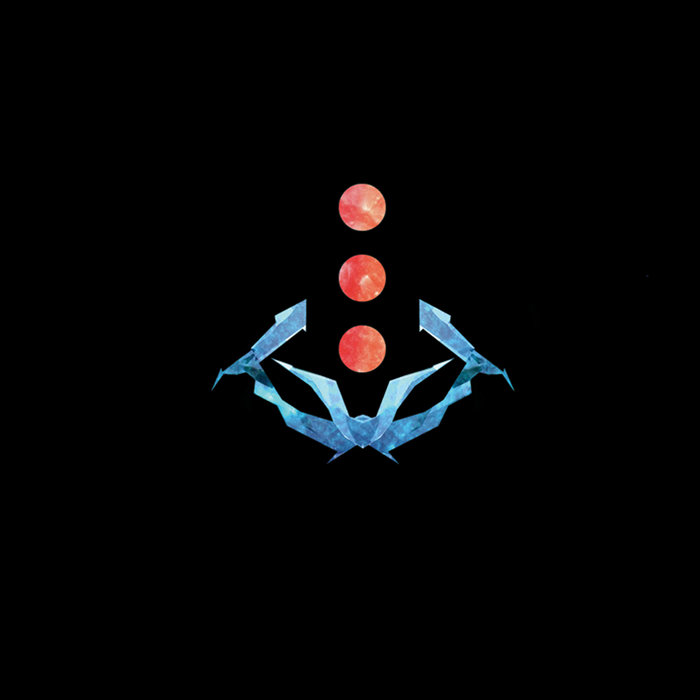- android trio: other worlds
(2021, usa, cd, cuneiform)
Featuring Andrew Niven on drums, percussion and synth, Eric Klerks on bass and Max Kutner on guitar, this is the trio's second release, following the 2017 "Road Songs" album.
"Other Worlds" is an impressive release. I've listened a couple of times already and I keep hearing new things all the time.
Recommended.
With special guests, including Mike Keneally on keyboard and guitar, who also co-produced the album!
Out on CD and on Bandcamp.
“Get your headphones,” Android Trio guitarist Max Kutner advises. Other Worlds is a wild ride.
It’s also a great advance over Android Trio’s powerful but recorded-in-a-hot-moment debut, Road Songs. Whereas the first record is essentially a performance document, Other Worlds is a fully fleshed-out compositional statement, marked by intricate production strategies and an assortment of extraordinary guests.
“Because we weren’t limited by studio costs and all that, we just went hog-wild on overdubs,” the guitarist explains. “So we were able to make an album to a level of excess that’s more like the things we grew up listening to. Kind of like Gentle Giant, or Genesis: this huge sound.”
If you go looking for influences, others will quickly surface. Progressive rock is certainly here: Other Worlds stands comparison to King Crimson’s masterpiece of the genre, Red, and Eric Klerks is one of a handful of electric bassists who can rival Yes mainstay Chris Squire’s singular blend of grandiosity and fierce aggression. In their deployment of odd time signatures and memorable melodies, many of the new record’s tunes owe a debt to the Bill Bruford/ Dave Stewart/ Allan Holdsworth school, while traces of American fusion can also be detected.
But, as Kutner points out, “we all love video-game music,” along with American minimalism, the hyper-technical electric jazz currently coming out of New York City, math rock, and the Ghanaian drumming that all three studied during their overlapping years at CalArts. (In fact, Other Worlds kicks off with one of those beats, before guest Jonathan Sindelman’s keyboards lead “Anger Dance” off in another direction altogether.
And then there’s the intriguing fact that Kutner, Klerks, and Andrew Niven were all schooled in playful virtuosity, sprung rhythms, and no-holds-barred experimentation while playing in two of the great legacy bands of progressive music: the Grandmothers, who specialize in the playful and occasionally self-mocking reinvention of the Frank Zappa/ Mothers of Invention repertoire, and the Magic Band, drummer-vocalist John “Drumbo” French’s uncannily inspired tribute to the music of his mentor and monster, Don “Captain Beefheart” Van Vliet.
“That’s how we kind of came together,” Kutner says. “Eric I knew more, because I’d played with him in a few different projects. Andy I met later, when I did this band called the Grandmothers of Invention, which was kind of like a Zappa alumni thing. We sort of crossed paths in Australia for the first time in 2014, when Eric and Andy were doing the Magic Band. And, you know, we were all like ‘This is great, but we need to do our own thing.’ Like, we can’t just play in legacy bands forever. We have to pay homage to the things we like by making our own stuff.”
Zappa’s influence is most apparent in the new record’s “Serial Tune”, which opens with a very Zappa-esque trumpet fanfare and draws on the late guitarist’s interest in putting early-20th-century compositional strategies into more accessible frameworks. Beefheart, in turn, comes to the fore on “Secular Athletes”, an appropriately muscular take on the brittle, bent blues abstractions of Van Vliet’s landmark Trout Mask Replica.
Neither sounds like anything other than Android Trio music—but there is another historical link in the presence of co-producer, keyboardist, and guitarist Mike Keneally, who was Zappa’s “stunt soloist” during the late 1980s, as well as a great composer and songwriter in his own right.
“I knew Mike, because we’d premiered one of his orchestral pieces in L.A. in 2011, and I’ve been in close contact with him ever since,” Kutner says. “And I figured that if there was anybody who would get all of the different references—the reference points for what we’re trying to do—and kick us in the ass to make sure that we were tighter in doing it, it would be Mike."
“He can play, sure, but he’s going to get subtle stuff in a way that a lot of other people wouldn’t get.” he continues. “And that’s the very cool thing about Mike: even though he’s twice our age, he’s just on it. He’s professional and he’s enthusiastic about things in the exact same way.”
With Keneally on board as musical guest, band counselor, technical supervisor, and ultimate aesthetic arbiter, Android Trio has made the album they really wanted to make — and Kutner stresses that Other Worlds is an album, in the best and most old-school possible way.
“All of us really love albums as much as we love performing,” he explains. “So we wanted to make this record something that’s fleshed out, in the way of the classic albums of the ’60s and ’70s: full of weird production stuff, and arrangements that might not necessarily translate to or even be possible in a live setting. We’re not going to be selling a million copies of this, so let’s just go for it and work with what we’ve got,” he adds. “We can’t be in the same room together, but we’re not limited by an engineer’s costs, or limited time for overdubs, or physical gear, so let’s just see what happens.
“That was really the focus: our love of sound—and it was probably the most fun album I’ve ever been a part of!”

No comments:
Post a Comment